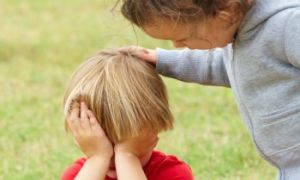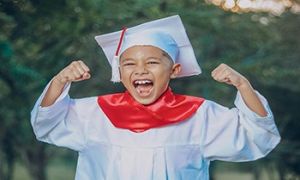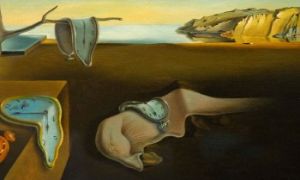

EYLF Outcome 1 focuses on children developing a strong sense of identity. It emphasizes the importance of children feeling safe, secure, and supported, which helps them grow in confidence to explore and learn. The following article provides information on the Definition Of Sub Outcomes, Practical Examples Of Sub Outcomes, Applying Sub Outcomes InTo Practice and more.
Here’s a step-by-step guide to programming and planning using EYLF. This guide also includes: How Do You Gather Information About Children's Interests, Strengths, and Learning Styles?, How Do You Analyze Observations To Identify Learning Outcomes?, How Do You Analyze Observations To Plan And Implement Further Learning Opportunities?, What Other Evidence Can Be Gathered To Intergrate Learning Opportunities Onto The EYLF Program and more.
The following article lists 30 art and craft descriptions and links to the EYLF. These can be used as a blurb, during observations, used for portfolios, or when displaying children's art and craft work.
Creating an Early Years Learning Framework (EYLF) curriculum plan involves several key steps to ensure it aligns with the framework’s principles and supports children’s learning and development. The following article provides a step by step guide on writing the EYLF curriculum plan.
Developmental milestones are things that, by a given age, most kids can accomplish. Milestones are reached by children in their play, learning, speaking, acting, and moving. The following article provides Developmental Milestones 2 - 3 Years Old with Examples Of Links To The EYLF.
Having a solid grasp of developmental stages will help you evaluate children's play and learning effectively. Sound professional knowledge should serve as the foundation for intentional teaching, planning, and evaluation. The following article provides Developmental Milestones 1 - 2 Years Old with Examples Of Links To The EYLF.
From today, 01 February 2024, both EYLF 2.0 and MTOP 2.0 will now come into effect and services will have to implement the new updated frameworks.
The Early Years Learning Framework recognizes the inextricable links that belonging, being and becoming have with learning. As part of this recognition, the framework elaborates learning outcomes, principles and practices for educators that will help them meet their professional goals while ensuring personal growth and well-being too. The following article provides definitions of belonging, being and becoming.
This template is used as a checklist to attach to documentation with a list of all the sub-outcomes for each of the EYLF Learning Outcomes Version 2.0.
Developing a sense of belonging is crucial for children to feel secure and loved both in family relationships and the larger community. The following article provides strategies on how Educators can help in developing a child’s sense of belonging.
 Here is the list of the EYLF Learning Outcomes that you can use as a guide or reference for your documentation and planning. The EYLF… Read More
Here is the list of the EYLF Learning Outcomes that you can use as a guide or reference for your documentation and planning. The EYLF… Read More
 The EYLF is a guide which consists of Principles, Practices and 5 main Learning Outcomes along with each of their sub outcomes, based on identity,… Read More
The EYLF is a guide which consists of Principles, Practices and 5 main Learning Outcomes along with each of their sub outcomes, based on identity,… Read More
 This is a guide on How to Write a Learning Story. It provides information on What Is A Learning Story, Writing A Learning Story, Sample… Read More
This is a guide on How to Write a Learning Story. It provides information on What Is A Learning Story, Writing A Learning Story, Sample… Read More
 One of the most important types of documentation methods that educators needs to be familiar with are “observations”. Observations are crucial for all early childhood… Read More
One of the most important types of documentation methods that educators needs to be familiar with are “observations”. Observations are crucial for all early childhood… Read More
 To support children achieve learning outcomes from the EYLF Framework, the following list gives educators examples of how to promote children's learning in each individual… Read More
To support children achieve learning outcomes from the EYLF Framework, the following list gives educators examples of how to promote children's learning in each individual… Read More
 Reflective practice is learning from everyday situations and issues and concerns that arise which form part of our daily routine while working in an early… Read More
Reflective practice is learning from everyday situations and issues and concerns that arise which form part of our daily routine while working in an early… Read More
 Within Australia, Programming and Planning is reflected and supported by the Early Years Learning Framework. Educators within early childhood settings, use the EYLF to guide… Read More
Within Australia, Programming and Planning is reflected and supported by the Early Years Learning Framework. Educators within early childhood settings, use the EYLF to guide… Read More
 When observing children, it's important that we use a range of different observation methods from running records, learning stories to photographs and work samples. Using… Read More
When observing children, it's important that we use a range of different observation methods from running records, learning stories to photographs and work samples. Using… Read More
 This is a guide for educators on what to observe under each sub learning outcome from the EYLF Framework, when a child is engaged in… Read More
This is a guide for educators on what to observe under each sub learning outcome from the EYLF Framework, when a child is engaged in… Read More
 The Early Years Learning Framework describes the curriculum as “all the interactions, experiences, activities, routines and events, planned and unplanned, that occur in an environment… Read More
The Early Years Learning Framework describes the curriculum as “all the interactions, experiences, activities, routines and events, planned and unplanned, that occur in an environment… Read More

Empathy can be understood as the experience of understanding another person's condition from their perspective...
See more...
A: As the end of the preschool year approaches, preschool educators begin preparing for graduation...
See more...
Salvador Dali was a famous Spanish artist known for being unconventional in both his creations...
See more...© 2009-2025 Aussie Childcare Network Pty Ltd. All Rights Reserved.

